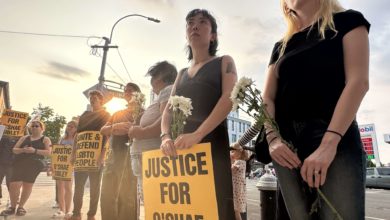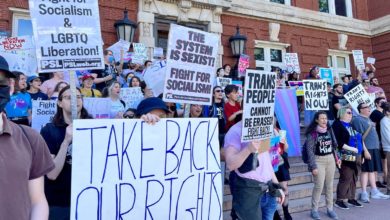On Feb. 5, 2013, LeslieAnn Manning, a 51-year-old trans women, was raped while imprisoned in New York State’s Sullivan Correctional Facility, a men’s prison. Since then, she has fought to get the New York Department of Corrections and Community Supervision to recognize the harm she endured while in their “care.” Exactly five years later, on Feb. 5, 2018, Manning won a $100,000 settlement from the state for failing to keep her safe.
This is the first time the State of New York has paid a prisoner for failure to protect them from sexual abuse. It is one of the largest amounts ever awarded involving a trans prisoner alleging rape or sexual assault.
While this victory is historic, and may set a precedent for future settlement struggles, it amounts to a partial victory. According to the settlement “the sum offered to Manning is in no way an admission of liability.” This refusal to admit liability is an attempt by the state to keep the lid on the prison system’s responsibility for abuse of transwomen in its facilities, and for denying them basic civil rights.
Transgender women in male prisons are 13 times more likely than the general prison population to be sexually assaulted. Close to two-thirds of trans prisoners report sexual assault. Many assaults are not reported, partly because the perpetrators are often prison guards, wardens and staff.
LeslieAnn Manning’s story
Arrested in 2008, Manning was placed in a men’s prison. This is common for trans women across the country. At the time of her arrest there were no gender identity protections in New York State, let alone for prisoners. It took a long hard fight from progressive forces before New York Governor Mario Cuomo adopted state-wide regulations prohibiting discrimination on the basis of gender identity. This was in 2015. Three years later, Manning still is not recognized as a woman, despite the state-wide regulations, and despite federal regulations requiring prisons to consider transgender identity when deciding prison placement.
Throughout her stay in the New York prison system, Manning continuously fought DOCCS to be recognized as a woman. In 2008 DOCCS was warned that an all male prison would be an unsafe environment for Manning. In 2013 a suit was settled allowing her wear to women’s undergarments under her prisoner’s uniform after years of being denied the right, simply because the state refused to recognize her gender. And when she first reported the rape both Manning and the attacker were placed in solitary confinement.
Punishing the victim with solitary confinement
Solitary confinement is widely recognized as extremely detrimental to the well-being of prisoners. Isolation can worsen the trauma of being assaulted. It contributes to prisoner psychosis and re-incarceration. In Manning’s case this solitary confinement was labeled “protective custody,” but in effect she was isolated from anyone who could help her, and the state could ignore her allegations for a time.
Manning is currently imprisoned at Wende Correctional Facility, a maximum security men’s prison near Buffalo, NY. On Oct. 13, New York State will finally be forced to comply with state and federal regulations requiring Manning to be housed with other women.
Manning’s victory is historic, though her situation is far from unique. Nearly one in six transgender people in the U.S., and one in two Black transgender people, have served prison time, where they experience heightened levels of assault and violence. This is part of a larger pattern of violence and discrimination that disproportionately affects people of color, poor people and transgender and gender-nonconforming people.
Denied recognition of their gender, and very often human decency, bourgeois society only grudgingly allows trans people to exist. They make up one of the most vulnerable and invisible sections of the working class, as their gender norms are seen as a threat by the one percent.
The disproportionate imprisonment of trans women is a form of class war waged by those in power against some of the most marginalized and vulnerable workers. Only a society free from the bourgeoisie, and its need to control the lives and choices of their subjects, will allow people like LeslieAnn Manning the freedom to live in accordance with her gender identity. A socialist America, built from the ground up, with workers and oppressed in power, has no need for this social control. This system holds the potential to recognize Manning’s full humanity as a transwoman and not simply as someone “in need of correction.”





